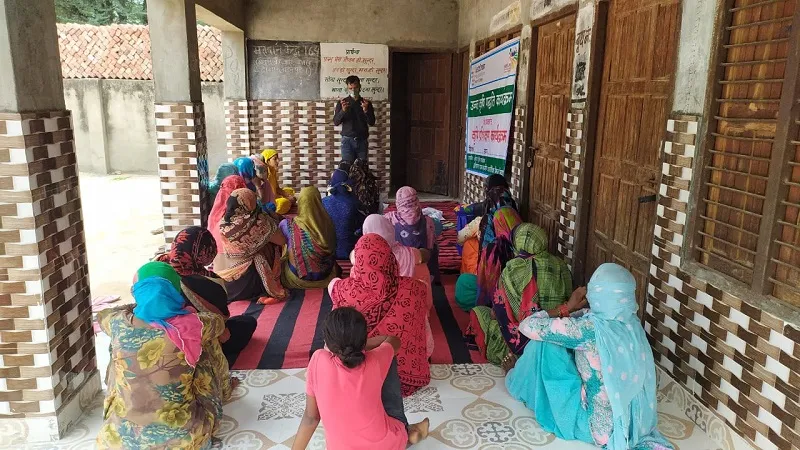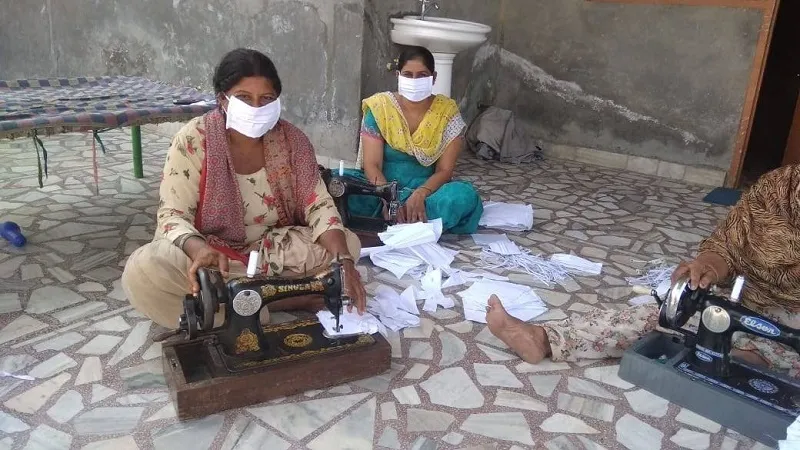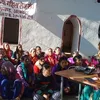From working with the government to implement policies at grassroots to supporting problem solvers, this foundation is on a mission
Veddis Foundation invests in organisations working at the intersection of technology, policy, and impact. Read how it has impacted the livelihoods of over 80,000 households…
Philanthropic donations in India come from four sources mainly - domestic corporate social responsibility (CSR) funds, smaller retail donors, overseas corporations contributions, and family donations.
Taking this a step ahead is Gurugram-based . Started as Letz Dream Foundation in 2006, Veddis invests in organisations working at the intersection of technology, policy, and impact. The foundation works directly with the government on effective public service delivery to create social change.
By taking an evidence-based approach to supporting institutions doing radical work, Veddis hopes to bring analytical rigour and a collaborative spirit to philanthropic investments, so as to also achieve measurable outsized impact.
Over the years, the foundation claims to have also worked directly (and indirectly) with multiple state governments and supported over 100 organisations, representing some of the most credible and innovative initiatives in the social sector.
Working with the government
Since registering in India in 2006, Veddis Foundation has worked to create deep irreversible social impact by leveraging policy and technology as agents of scale. The foundation has been a part of the direct implementation of the National Rural Livelihoods Mission (NLRM) in Haryana and Rajasthan.

Training self-help groups in Haryana
Murugan Vasudevan, CEO, Veddis Foundation says, “We do not run parallely with NRLM. We are helping the Haryana government with these programmes in the way it is intended to run. In most states, it operates unidirectionally, where the money goes in one way. The programmes are intended to run as micro financing institutions and we are helping in that.”
Partnering with the Haryana State Rural Livelihoods Mission, Veddis provided technical and managerial support to improve governance and sustainability in the state. In less than two years, the organisation focussed on nearly 31 Cluster Level Federations (CLF) for strategic development of the communities.
In this period, Veddis claims to have improved livelihoods for 80,000+ rural households across seven districts of Haryana, with an average annual income increase of Rs. 78,850 per household (from Rs. 67,150 to Rs. 1,46,000). Currently, a team of 20 still work in the region.
Meanwhile in Rajasthan, the foundation has embarked on a partnership with the Rajasthan Grameen Aajeevika Vikas Parishad, delivering 5000+ livelihood training sessions over two years. In mid-2016, Veddis partnered with the government with the prime objective of increasing community access to funds by establishing financially stable CLFs for long term sustainability.
Nearly 42 CLFs in from 10 districts - Churu, Kota, Tonk, Jhalawar, Bhilwara, Udaipur, Rajsamand, Bara, Dungarpur and Banswara - were selected for the programme. The foundation’s strategy in the state was two pronged - a) Improve public delivery systems through good governance b) Establish CLF-based livelihood models for financial sustainability.
This has reportedly led to a rise in household income for 1,60,000 households across 10 districts of the state. The average annual income increased by Rs. 42,300 per household (from Rs. 76,500 to Rs. 1,18,000), according to the foundation.
As per Murugan, the repayment rate of State Rural Livelihoods Mission (SRLM) are 75-80 percent in these two states, as against the earlier single digit figures.
“In each of the above cases, the approach was to solve, scale, institutionalise, and exit after achieving irreversible social impact,” Murugan says, adding that the foundation plans to expand to other states as well in the coming months.
Three-year mission
In 2014, the foundation incubated LetzChange.org, an online platform that leveraged technology for retail fundraising. Today, the same platform powers GiveIndia - India's largest giving platform and has effectively multiplied Veddis Foundation’s initial investment to create a high magnitude of social return.

COVID relief programme in Haryana
According to the foundation, it has committed to invest over Rs.100 crore over three years to empower organisations solving complex societal challenges in India. This commitment will be carried out through multiple programmes focused on social impact, policy action, and governance. Veddis Foundation’s first initiative under this commitment, The Social Impact Fund (SIF), is aimed at providing grants to non-profit organisations working to improve public service delivery and governance.
On supporting non-profit organisations that are working on implementing government schemes, Murugan says, “We want to encourage other NGOs looking at creating technology based solutions for certain challenges with unrestricted money as long as they drive outcome.”
Additionally, Veddis Foundation also plans to work on policy design, with a special focus on research, evidence, and data. This will be done with the help of organisations working closely with the government.
(With inputs from Sherina Poyyail)
Edited by Anju Narayanan








